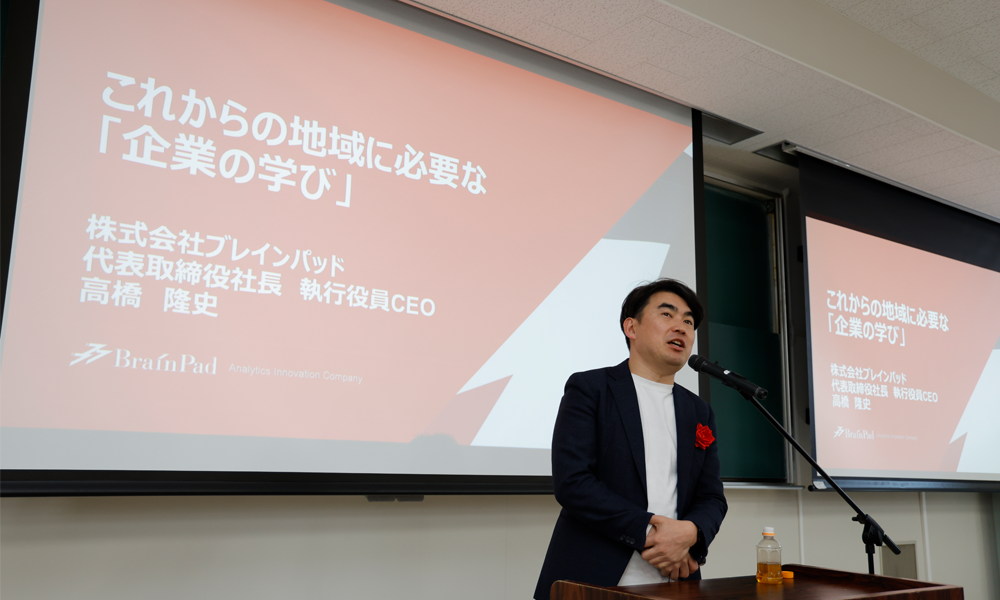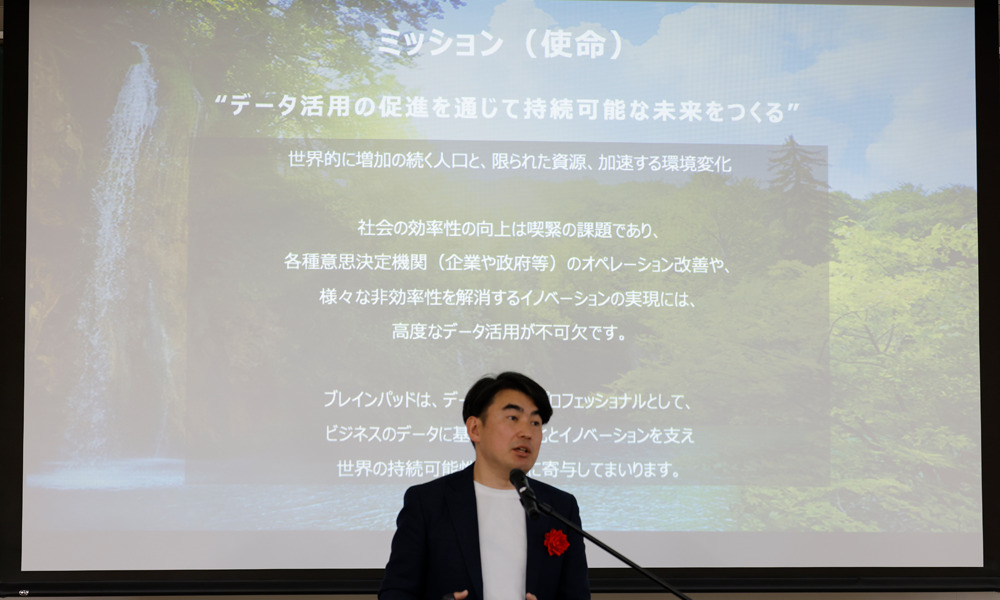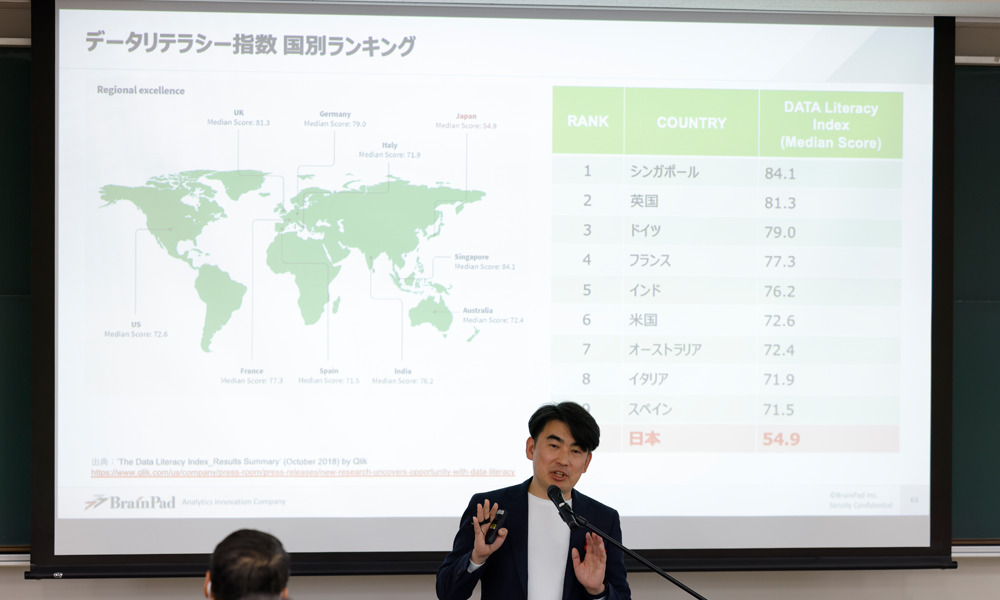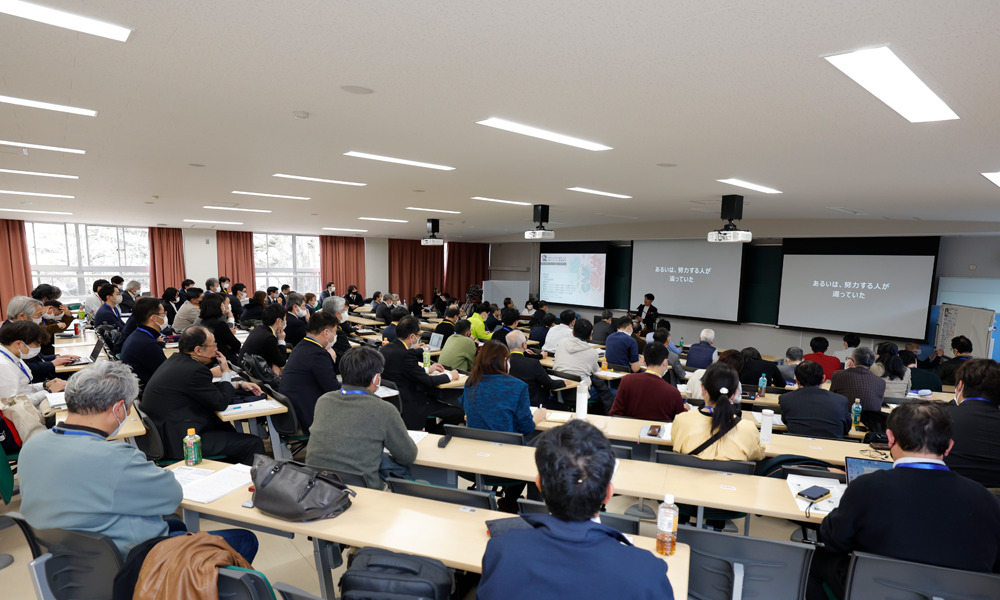The lectures at the 4 COC+R National Symposium were given by three speakers.As part 3, Mr. Takashi Takahashi, President and Representative Director of BrainPad Co., Ltd., took the stage from the perspective of "learning about companies."The content was about new learning for companies to change, and the realization of that will lead to Japan's comeback.

No business can grow without change
I would like to talk about “corporate learning,” but let’s start by explaining why humans need to learn in the first place.Personally, it's to satisfy my curiosity, but in the case of companies, it's to change behavior, or more specifically, to change the content, speed, and efficiency of what they're doing.Some people say why it needs to be changed, and that if it is stable, there is no need to change it, but Japan has not grown in the last 30 years, and its GDP has been surpassed by neighboring countries.And it can lead to damage to your life.
As the population declines and the market shrinks, companies are also required to be responsive to change.For example, comparing Toyota and Tesla.Toyota makes many times as many cars as Tesla, but in terms of market capitalization, Tesla has tripled Toyota's.This is because Tesla is a company that creates change.SpaceX, CEO of Tesla's Elon Musk, has successfully launched 3 rockets in 2022 alone.On the other hand, Japan's JAXA has 61 times in 20 years. SpaceX is launching rockets with this sense of speed for the reform of communication services.
If you don't change, you won't grow.And in order to change, we need to learn.

Practical use of AI ─ Knowing is an opportunity, not knowing remains a threat
There is an AI that creates images and sentences called generative AI.We also have a service that generates images of faces that do not exist in this world.ChatGPT, which has become a hot topic recently, is an AI for sentence generation, and although there are mistakes, it provides highly convincing things with a huge amount of learning data.The problem of creating students' homework and papers with this is also being discussed, but the field of education is also changing at a tremendous pace. It's only a matter of time before AI becomes a productive problem solver.While robots were once said to take over blue-collar jobs, AI is more likely to take over simple white-collar jobs.
There is a big difference between knowing and using these things and remaining unaware of them.We must know that there are many players outside of Japan who could take away jobs in telecommunications services, just like Rocket.On the other hand, I am excited to see what we can do with this kind of AI.Not knowing is a threat, but knowing is an opportunity.I wish I could make such an opportunity.
It should be noticed that it is "lost 30 years" instead of "lost 30 years"
To think about how Japan should change, let's take a look at how Japan compares internationally. Japan's competitiveness, as surveyed by IMD, used to rank first, but now ranks 1th.In terms of business efficiency, it ranks last among the 34 countries surveyed.
In addition, according to the Ministry of Economy, Trade and Industry's "Future Human Resources Vision," the abilities required of human resources in 2050 will be completely different from today, and it is predicted that "problem finding ability," "precise prediction," and "innovativeness" will rank high. doing.Engagement between companies and employees (percentage facing the same direction), desire to continue working at current employer, and willingness to change jobs are the lowest in all 14 Asian countries.I don't want to be at this company, but I don't want to go anywhere else, and I feel lethargic.It is a hopeless result in terms of international comparison of human resource investment and intention to study abroad.
why did this happen?The biggest problem was that although we were aware of these issues, we were trying to solve them in the wrong direction.The biggest problem is that no matter how hard you try, nothing changes, or rather, things get worse.We should realize that the leaders were wrong, not the people in the field, and that Japan's growth up until the 80s was an accidental coincidence of various factors.
Different ways of thinking about IT investment in Japan and the US

The nature of the data changes depending on where the IT system is used.In the United States, we are aggressively utilizing IT, such as strengthening the development of services using IT.In Japan, on the other hand, there are many cases where the purpose is to reduce costs.It's a defensive IT investment, and it's just a support role. According to a survey*, more than 65% of IT engineers in the United States are employees, and more than 70% in Japan are outsourced*.
In 1995, when the full-scale spread of the Internet began, the opportunity to change the business model was born equally around the world.There were companies that jumped at it and companies that didn't.For example, the difference was whether or not we improved the software to be easy to use and attracted customers. When comparing the amount of investment in ICT as a percentage of GDP, Japan and the United States are almost the same.However, Japan is far behind when it comes to expanding the industry. How to use IT as a weapon is still a management decision.Even if the tools are good or the engineers are excellent, nothing will change unless the management's awareness changes.
By the way, I founded BrainPad in 2004 when I saw the potential of business opportunities on the Internet. I think I've proven that.
*From Information-technology Promotion Agency, Japan "IT Human Resources White Paper 2017"
Managers are the ones who need “learning” the most in local industries

I know we all have to learn in situations like this.And I say out loud that the person who needs to study the most is you, the manager.Young people don't come to companies run by people who don't study.You should feel that sense of danger and take the initiative to start studying.
Now I can do various jobs while staying in my hometown with remote work.This leads to the loss of local talent.Starting salaries for new graduates are also rising, and we managers are terrified.If the ability to earn money is low, excellent local people will be brought to Tokyo companies with pinpoint accuracy.That's already happening.
So, on the contrary, you can also go to pick up various jobs and opportunities.If you increase your productivity, you can create a place for people who want to work locally.Smaller, growing companies like the former Second Section of the Tokyo Stock Exchange are a particular opportunity.Easy to turn around and easy to change.Opportunities are expanding as we live in an age where we can get jobs globally without going through Tokyo.It's a waste to stay inside.Study hard and grab your chance.
*The video of the symposium is open to all COC+R members.
●Symposium video list page
https://coc-r.jp/archives/

